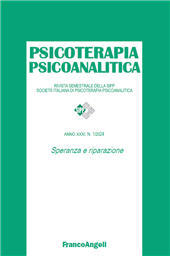Io vivo fra le cose
P. 138-149
Indagare e conoscere se stessi e il proprio essere al mondo attraverso l'osservazione e una speciale osmosi con le cose. Questo potrebbe essere lo slogan di questo articolo. In realtà si tratta di cose che sono state dismesse d'ufficio perché non più funzionanti o superate, talune gettate, altre perdute. Cose che nel contatto con l'atmosfera annichilente dell'abbandono, si sono talora disintegrate, logorate, scolorite, spellate, levigate, fino a divenire altro. E comunque frammenti di vita che ci erano appartenuti. “Quando le cose erano cose ci sentivamo meno soli” sembra essere il refrain che aleggia come voce fuori campo per tutta la durata del testo. Potremmo definire Geminiani “L'antropologo delle maree”, perché la maggior parte delle cose che ha collezionato nei decenni trascorsi provengono da spiagge fuori stagione. L'autore arriva a teorizzare empiricamente sul vacillamento esistenziale dei no-stri tempi.
Quella inquietudine che, secondo lui, l'omologazione del mercato delle cose, e la fine di quella allegra e balzana biodiversità degli oggetti che aveva caratterizzato i decenni '60, '70 e '80, ha contribuito a rafforzare nelle persone; perché un oggetto effimero trasmette un sentimento di precarietà e, in una società già liquida, può aggravarne i sintomi, a differenza di quelle cose appartenenti al paesaggio do-mestico dell'infanzia. Cose destinate a durare e a essere cedute alle ge-nerazioni successive, cose in grado di ricambiare il nostro sguardo alla stregua di creature viventi. A parlare di cose e di sé, senza troppi filtri, è una persona che ha vissuto intensamente la solitudine di un abbandono che va considerato come esilio “volontario” per un deficit di autostima e un eccesso di impressionabilità: una pellicola troppo fotosensibile per potersi esporre nella luce piena e abbacinante di una giovinezza che non lo contemplava. [Testo dell'editore]
Investigating and knowing yourself and your own being in the world through observation and a special osmosis with things. This could be the slogan of this article. In reality these are things that were officially discarded because they no longer worked or were outdated, some thrown away, others lost. Things that, in contact with the annihi-lating atmosphere of abandonment, have sometimes disintegrated, worn out, discolored, peeled, smoothed, to the point of becoming something else. And in any case fragments of life that had belonged to us. “When things were things we felt less alone” seems to be the re-frain that hovers like a voice-over for the entire duration of the text. We could define Geminiani as the anthropologist of the tides, be-cause most of the things he collected in the past decades come from off-season beaches. The author comes to theorize empirically on the existential vacillation of our times.
That restlessness which, according to him, the standardization of the market of things, and the end of that cheerful and bizarre biodiversity of objects that had characterized the '60s, '70s and '80s, contributed to strengthening in people; because an ephemeral object transmits a feeling of precariousness and, in an al-ready liquid society, can aggravate the symptoms, unlike those things belonging to the domestic landscape of childhood. Things destined to last and be passed on to subsequent generations, things capable of looking back at us like living creatures. Talking about things and him-self, without too many filters, is a person who has intensely experi-enced the loneliness of an abandonment which must be considered as “voluntary” exile due to a lack of self-esteem and an excess of impres-sionability: a film that is too photosensitive to be able to expose him-self in the full and dazzling light of a youth that did not contemplate him. [Publisher's text]
Fa parte di
Psicoterapia psicoanalitica : 1, 2024-
Articoli dello stesso fascicolo (disponibili singolarmente)
-
Informazioni
Codice DOI: 10.3280/PSP2024-001010
ISSN: 2531-6753
MATERIE
PAROLE CHIAVE
- cose, frammenti, scarti, empatia, emarginazione, solitudine
- things, fragments, scraps, empathy, marginalization


